- Furniture
- Living Room
- Sofas & Loveseats
- Accent Chairs
- Recliners
- Massage Chairs
- Coffee Tables
- End & Side Tables
- Ottomans
- Entertainment Centers & TV Stands
- Cabinets & Chests
- Bedroom
- Beds & Bed Frames
- Mattresses
- Nightstands
- Dressers & Chests
- Armoires & Wardrobes
- Makeup Vanities
- Jewelry Armoires
- Clothing & Closet Storage
- Bedding
- Kitchen & Dining
- Dining Room Sets
- Dining Tables
- Dining Chairs
- Bar Tables
- Bar Stools
- Kitchen Islands & Carts
- Sideboards, Cabinets & Buffets
- Outdoor
- Outdoor & Patio Furniture
- Patio Conversation Sets
- Outdoor Sectionals
- Patio Dining Sets
- Patio Dining Chairs
- Patio Tables
- Patio Bar Furniture
- Patio Rocking Chairs & Gliders
- Adirondack Chairs
- Outdoor Benches
- Porch Swings
- Hammocks
- Outdoor Chaise Lounges
- Beach & Lawn Chairs
- Outdoor Furniture Accessories
- Garden
- Raised Garden Beds
- Plant Stands
- Plant Supports
- Potting Benches & Tables
- Greenhouses
- Grow Tents
- Garden Tools
- Outdoor Grills
- Outdoor Decor
- Swimming Pools
- Outdoor Storage & Garages
- Sheds & Outdoor Storage
- Carports
- Garages
- Camping
- Camping Furniture
- Tents
- Coolers
- Air Mattresses & Sleeping Bags
- Kitchen
- Appliances
- Decor
- Bath
- Baby & Kids
- Toys & Hobbies
- Sports
- Pets
- Health & Beauty
- Sales & Deals
- LIVE

58 Inch 4-Tier Bamboo Ladder Bookshelf
$59.00$96.00
Save $37 (38%)
5-Tier Floor Standing Tree Bookcase with Drawer
$39.00$96.00
Save $57 (59%)
6-Tier Tall Industrial Bookcase with Open Shelves and 4 Hooks
$144.00$288.00
Save $144 (50%)
9 Cubes Bookcase with Carbon Steel Frame for Home Office
$134.00
Open-Back Bookshelf with Drawer for Study
$109.00$134.00
Save $25 (18%)
23.5 x 9.5 x 67 Inch 5-Shelf Multi-Functional Wood Bookcase for Home Office
$84.00$209.00
Save $125 (59%)
9-Cube Wooden Freestanding Bookcase for Home and Office
$109.00$174.00
Save $65 (37%)
Free Standing Pantry Cabinet with 2 Door Cabinet and 5 Shelves
$94.00$188.00
Save $94 (50%)
2-Tier Retro Bookcase Bookshelf with 3 Compartments
$87.00$174.00
Save $87 (50%)
Standing Wooden Bookcase with 3 Tier Open Book Shelving and Double Doors
$169.00$277.00
Save $108 (38%)
2-Piece Separable Bookshelf Floor Standing Corner Display Storage
$159.00$352.00
Save $193 (54%)
Storage Cabinet Bookcase with Doors and Display Shelf
$109.00$218.00
Save $109 (50%)
Sideboard Storage Cabinet with Door Shelf
$89.00
3-Tier Open Bookcase 8-Cube Floor Standing Storage Shelves
$132.00$278.00
Save $146 (52%)
Industrial Storage Shelf with 2 Shutter Doors
$99.00
Freestanding Vertical 3 Drawer Dresser with 3 Shelves
$89.00$178.00
Save $89 (50%)
L Shaped Freestanding Ladder Corner Bookshelf with 6 Cubes
$139.00
5-Tier Wood Geometric Bookshelf with S Shaped Design
$89.00$222.00
Save $133 (59%)
6 Tier S-Shaped Bookshelf Storage Display Bookcase Decor Z-Shelf
$94.00$150.00
Save $56 (37%)
5-Tier Bookshelf Corner Ladder Bookcase with Storage Rack
$79.00
DIY Free Combination Wooden Cube Bookcase for Home Office
$99.00
6-Tier S-Shaped Freestanding Bookshelf with Cabinet and Doors
$119.00
- 3 Sizes
2/3/4 Tiers Wooden S-Shaped Bookcase for Living Room Bedroom Office
$51.00$127.00
Save $76 (59%)
4-Tier Leaning Free Standing Ladder Shelf Bookcase
$72.00$90.00
Save $18 (20%)
5-tier Freestanding Decorative Storage Display Bookshelf
$74.00$183.00
Save $109 (59%)
4-Tier Industrial Freestanding Bookshelf with Metal Frame
$79.00
Hanging Storage Shelf Circular Wall-Mounted 4-Tier Rack
$64.00$117.00
Save $53 (45%)
80 Inch Freestanding Industrial Double Wide 6-Shelf Bookcase
$254.00$300.00
Save $46 (15%)
2 Pieces 4-Tier Wood Display Storage Bookshelf Set
$129.00
Vintage Industrial Style Triple Wide 5-Tier Bookcase with Metal Frame
$189.00$235.00
Save $46 (19%)
4-Tier Folding Bookshelf No-Assembly Industrial Bookcase Display Shelves
$84.00$168.00
Save $84 (50%)
3-Tier Wooden Multi-Functional X-Design Etagere Storage Bookshelf
$69.00$95.00
Save $26 (27%)
Tree-Shaped Bookshelf with 13 Compartments for Home Office
$91.00$111.00
Save $20 (18%)
5-Tier Freestanding Bookshelf with Anti-Toppling Device
$92.00$230.00
Save $138 (60%)
4-Tier Bamboo Bookshelf Ladder Shelf Plant Stand Rack
$69.00$172.00
Save $103 (59%)
Industrial 5-Layer Bookshelf with Out-Stretched Legs
$113.00$282.00
Save $169 (59%)
Ladder Shelf Desk with Countertop Drawer and Anti-Toppling Device
$139.00$153.00
Save $14 (9%)
- 2 Sizes
3/5 Tiers Industrial Bookcase with Metal Frame for Home Office
$71.00
4-Tier Industrial Corner Ladder Shelf Display Rack for Home Office
$54.00$109.00
Save $55 (50%)
8 Shelf Wood Bookshelf with 8 Book Shelves for Home Office Decor
$74.00$184.00
Save $110 (59%)
5-Tier Modern Corner Bookcase Shelf with Strong Wooden Frame
$64.00
10-tier Tree Bookshelf with Drawer Free-standing Storage Bookcase
$74.00$154.00
Save $80 (51%)
6-Tier Industrial Wall Mounted Pipe Shelves
$122.00$304.00
Save $182 (59%)
5-Tier Modern Bamboo Wall-Leaning Display Ladder Bookshelf
$59.00
5-Tier Wood Look Ladder Shelf with Metal Frame for Home
$67.00$82.00
Save $15 (18%)
Industrial 4-Tier Ladder Shelf with Metal Frame for Living Room Office
$59.00$147.00
Save $88 (59%)
5-Tier Ladder Shelf with Open Shelves for Living Room Home Office
$64.00$78.00
Save $14 (17%)
4-Tier Industrial Ladder Bookshelf with Metal Frame
$69.00$115.00
Save $46 (40%)
Related Searches
When selecting bookcases for your home, consider both functionality and aesthetics to ensure a well-balanced purchase. Start by assessing your available space and measuring the area where the bookcase will be placed. This will help you determine the appropriate size and dimensions.
Material plays a crucial role in the durability and visual appeal of a bookcase. Common materials include solid wood, engineered wood, metal, and glass. Solid wood bookcases offer a classic, sturdy option, while engineered wood is a more budget-friendly alternative. Metal and glass bookcases add a modern touch but may require more maintenance.
Shelving configurations vary, so think about your storage needs. Adjustable shelves allow for flexibility in accommodating different-sized items, while fixed shelves provide stability for heavier items. Consider the depth of the shelves as well; deeper shelves are ideal for larger books and decorative items.
Style is a personal preference, so choose a bookcase that complements your existing decor. Traditional designs often feature ornate details, while modern styles are sleek and minimalist. Open shelving creates a more accessible and airy feel, while closed-back or barrister bookcases offer a tidier appearance.
Evaluate the assembly process before purchasing. Some bookcases come ready-made, while others require assembly. If you're not comfortable with DIY tasks, opt for pre-assembled options or consider professional assembly services.
Lastly, factor in your budget. Bookcase prices vary widely, so determine a reasonable budget range before browsing. Be mindful of additional costs such as shipping fees or assembly services.
In summary, prioritize size, material, shelving configuration, style, assembly, and budget when selecting a bookcase. This comprehensive approach ensures that your purchase aligns with both your practical needs and aesthetic preferences.
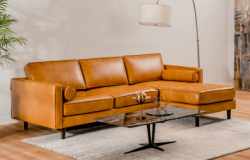
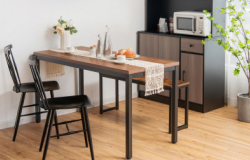
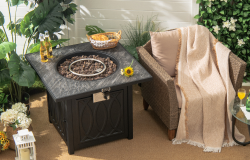
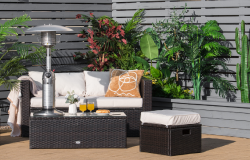
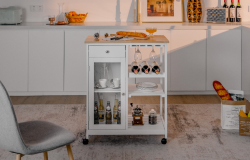
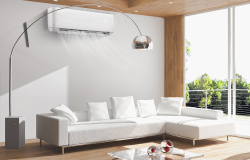
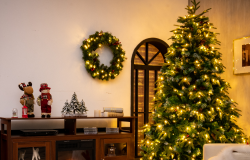
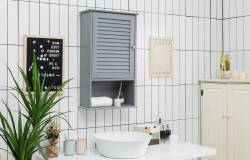
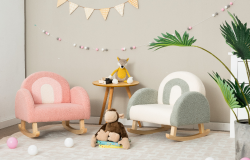
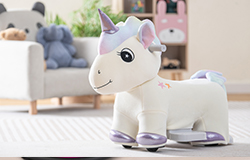
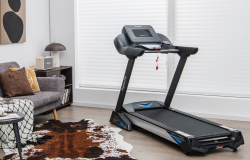
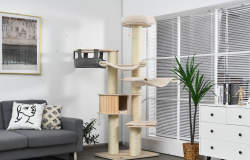
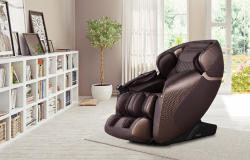


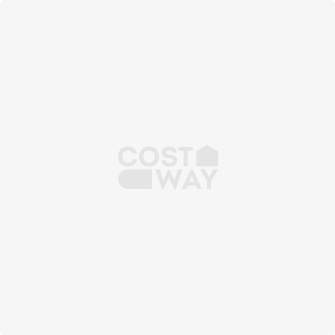
 Added to
Added to 
 4.3
4.3








